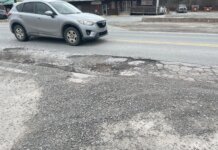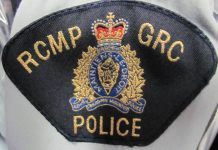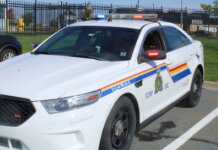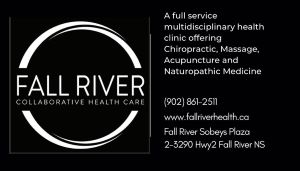HRM: Nova Scotia has recorded its second death related to COVID-19.
On Wednesday, April 8, a woman in her 90s with underlying medical conditions died in the Cape Breton Regional Hospital as a result of complications related to COVID-19.
“The death of a loved one is never easy. Unfortunately, this virus makes the loss of a family member all the more difficult,” said Premier Stephen McNeil. “I want to offer my sincere condolences to the family as they grieve. Together, we have the power to stop this disease.”
As of today, April 9, Nova Scotia has 373 confirmed cases of COVID-19. Thirty-one new cases were identified Wednesday, April 8.
The QEII Health Sciences Centre’s microbiology lab completed 980 Nova Scotia tests on Wednesday, April 8 and is operating 24-hours.
While most cases in Nova Scotia have been connected to travel or a known case, there is now community spread. That is why travel has been removed as a requirement for testing for COVID-19.
The list of symptoms being screened for has also expanded. If you have two or more of the following symptoms, visit https://811.novascotia.ca/ to determine if you should call 811 for further assessment:
— fever
— new or worsening cough
— sore throat
— runny nose
— headache
To date, Nova Scotia has 12,177 negative test results, 373 positive COVID-19 test results and two deaths. Confirmed cases range in age from under ten to over 90. Ten individuals are currently in hospital, four of those in ICU. Eighty-two individuals have now recovered and their cases of COVID-19 are considered resolved. Cases have been identified in all parts of the province. A map and graphic presentation of the case data is available at https://novascotia.ca/coronavirus/data .
Public health is working to identify and test people who may have come in close contact with the confirmed cases. Those individuals who have been confirmed are being directed to self-isolate at home, away from the public, for 14 days.
Anyone who has travelled outside Nova Scotia must self-isolate for 14 days. As always, any Nova Scotian who develops symptoms of acute respiratory illness should limit their contact with others until they feel better.
It is now more important than ever for Nova Scotians to strictly adhere to the public health orders and directives – practise good hygiene, maintain a physical distance of two metres or six feet from others, limit essential gatherings to no more than five people and stay at home as much as possible.
Nova Scotians can find accurate, up-to-date information, handwashing posters and fact sheets at https://novascotia.ca/coronavirus .
Today’s update will be livestreamed at 3 p.m. on https://novascotia.ca/stayinformed/webcast , @nsgov Facebook and YouTube channels.
Quick Facts:
— testing numbers are updated daily at https://novascotia.ca/coronavirus
— a state of emergency was declared under the Emergency Management Act on March 22 and extended to April 19
— there are 22 primary assessment centres in Nova Scotia: 21 operated by Nova Scotia Health Authority (NSHA) and one operated by the IWK Health Centre, temporary primary assessment centres are operating in two communities
— two mobile assessment centres are being established by NSHA to do community-based testing; Emergency Health Services operates two field assessment units, one in Halifax Regional Municipality and one in Cape Breton Regional Municipality
— the first death in the province was on April 6 – a woman in her 70s with underlying medical conditions died in hospital in the Eastern Zone as a result of complications related to COVID-19
Additional Resources:
Government of Canada: https://canada.ca/coronavirus
Government of Canada toll-free information line 1-833-784-4397
The Mental Health Provincial Crisis Line is available 24/7 to anyone experiencing a mental health or addictions crisis, or someone concerned about them, by calling 1-888-429-8167 (toll free).
Kids Help Phone is available 24/7, by calling 1-800-668-6868 (toll-free).































